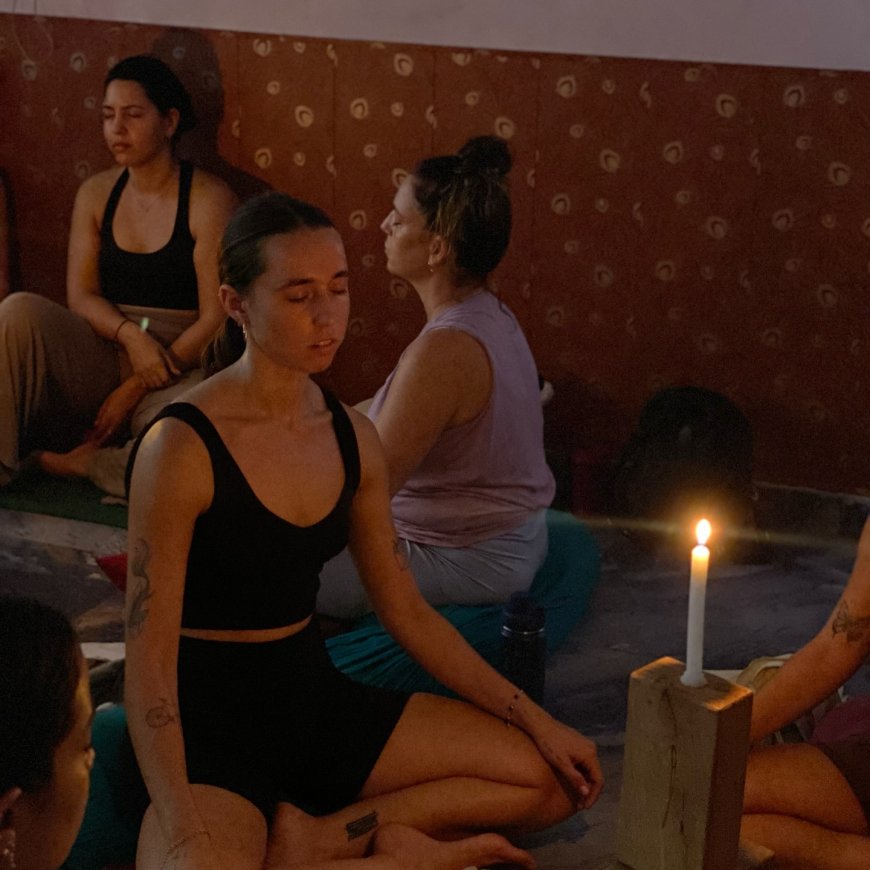A Mindful Guide to Postpartum Recovery: Healing for Body and Mind
blog provides a soft, respectful companion in the road to postpartum, in the healing of body and mind.

The experience of giving birth is one of the most profound, life-altering, transformational experiences a person can have. But, even though theres a great deal of focus on pregnancy and birth, the postpartum period, the days, weeks and months following delivery are rarely discussed and vastly underrated. Childbirth recovery is not just a physical recovery; its a profoundly emotional and mental recovery, too.
And this blog provides a soft, respectful companion on the road to postpartum, in the healing of body and mind. If you are a new mother, a partner or a person who cares for a new mother, it is important that you have a realistic expectation of the postpartum road for your future health.
Understanding the Postpartum Period
The postpartum period immediately follows birth and is approximately six weeks long, and healing can extend over several months or more. This period is sometimes called the fourth trimester, underscoring that this journey does not end with the birth itself.
During this time, our body goes through extreme physical transformation as we begin our return to our former selves, and our minds are processing a whole new way of beinglearning how to live with a new baby, coming to terms with sleep deprivation, adapting to shifting identities, and riding our emotions.
Physical Recovery: Honouring the Body
Your body has just experienced quite a transformation. Vaginal birth or C-section, giving birth is physically brutal, and recovery is about rest, care and patience.
Rest and Restoration
You will be awake at odd hours, but rest in any form is important. Let it be OK to rest, nap and slow down, rather than gauge your productivity on what you would consider normal. This isnt indulgenceits healing.
If the baby naps, take catnaps.
Accept offers from others to help with meals and household chores.
Marching band and student athletes If you are easily fatigued and need space and rest, establish visiting boundaries.
Healing After Vaginal Birth
Recovery from a vaginal delivery can involve perineal discomfort, vaginal discharge (lochia), and mild cramps as the uterus contracts. Some mindful steps for comfort:
Take sitz baths or apply warm compresses.
Keep your hygiene gentle and the area clean.
Use witch hazel pads or postpartum sprays to alleviate swelling.
Recovery After Cesarean Section
A C-section is a major operation. While it's usually a longer, more careful recovery:
Do not lift anything heavy for 6 weeks.
Watch for signs of infection at your incision site.
Remember to do some mindful breathing and gentle exercises to help circulation and healing.
Nourishment and Hydration
Nutrition. While breastfeeding, postpartum nutrition is also important for energy and milk production, as well as recovery. Eating a nutritious diet combined with lots of liquid can be generally supportive of overall health:
Eat real food: greens, clean protein, whole grains, healthy fats.
Stay hydrated, especially if breastfeeding.
Think of balancing them with warm, easy-to-digest meals (such as soups and stews), which are recommended in many traditional postpartum practices for digestion and comfort.
Pelvic Floor and Core Healing
Pregnancy and vaginal delivery contribute to great load on the core muscles and pelvic floor muscles. Pelvic floor physiotherapy, conscious breathing and gentle firing of the core can begin as soon as two weeks postpartum (if your doctor approves).
Being mindful of how your body feels what is supportive and what feels like strain is critical.
Emotional and Mental Well-Being
Hormonal fluctuations, exhaustion, and the stress of new roles can be hard on mental health. All of this is perfectly normal, and its vital to voice and validate these feelings.
Baby Blues vs. Postpartum Depression
Baby blues are normal and can affect as many as 80% of new mums. You also may experience tearfulness, overwhelm or anxiety during those first two weeks. Yet if these emotions stick around or get worse, it might be a sign of postpartum depression (PPD) or postpartum anxiety (PPA).
Warning signs include:
Persistent sadness or hopelessness
Irritability or rage
Difficulty bonding with the baby
Unseen by the baby are related sleep problems
Intrusive or scary thoughts
These are not symptoms of failure. Theyre an illness and there are treatments in therapy, support groups, medication or holistic care. If you feel that a professional would be more appropriate, dont hesitate to make contact with one.
Identity Shifts and Emotional Processing
Motherhood is joyful, but also involves identity shifts. You might feel disconnected from the you who existed before the baby, or unable to reconcile personal goals with the demands of caregiving.
Mindfulness can help. Journaling, meditation, or sitting quietly to reflect for just a few minutes a day can help you reconnect with who you are now.
Enroll Now: 200 Hour Yoga Teacher Training in Rishikesh at Rishikul Yogshala Rishikesh
Managing Expectations and Guilt
It is natural for many new parents to struggle with unrealistic expectations a desire to bounce back or do everything right. Pain to your self-esteem can be amplified by social media. Its vital to remind yourself:
There is no single right way to parent.
The value of your life is not a function of productivity.
Good enough is really good enough.
Let go of perfection. Replace it with compassion.
Mindful Practices to Support Recovery
Healing doesnt require elaborate rituals. Small, quiet approaches to healing can yield a big return on your investment.
Breath Awareness
Just a few minutes of slow, deep breathing can trigger the bodys relaxation response and lower cortisol levels. Try this:
Breathe in deeply through your nose for a count of 4.
Hold for 2 counts.
Breathe out slowly through the mouth for 6 seconds.
Do this for 5 minutes to reset yourself during periods of anxiety or fatigue.
Gentle Movement
Once your doctor gives you the go-ahead, add in light stretches, walks, or postpartum yoga to get the blood flowing and lift your spirits.
Concentrate on movements that feel as if you are being nurtured.
Avoid high-impact exercises too soon.
Tune in to your body take rests if required.
Gratitude and Affirmations
Find a way to practice gratitude, big or small. Start a gratitude journal, and write down one thing youre grateful for every day. Use affirmations like:
Im recovering at my own rate.
I am enough, just as I am.
I respect my path and my power.
These little bursts of mindfulness can help shift your perspective and lift your spirit.
Building a Support System
You dont have to go through this alone. We believe you recover easier, more holistically when you have support.
Partners: Be open about what you need. Divide night duties, emotional labour and responsibilities.
Friends and Family: Accept their offer to get a takeout meal, run an errand or cuddle the baby so you can rest or take a shower.
Postpartum Doulas/Lactation Consultants: Trained professionals who focus on supporting postpartum mothers and their partners in areas such as feeding (both bottle and breast), sleep and mood.
Community Groups: Taking the time to join new mom communities (both virtual and in-person) can help decrease isolation and provide a place to feel seen.
Asking for help isnt weakness its strength in realising that healing isnt a solo process.
Creating a Nurturing Environment
Recovery can also be supported by your environment. Make a concerted effort to create an atmosphere that feels calming and safe:
Have the essentials nearby (diapers, snacks, a water bottle, nursing supplies).
Provide a relaxed atmosphere with soft ambient lighting and music.
Bring out the aromas of lavender or chamomile for relaxing vibes.
The aim is not perfection but comfort. Your home is your temple in this sacred season.
Returning to Yourself
Postpartum recovery isnt about getting back to the you you were before you gave birth its about learning who you are now. This is a time of change, not only physically but spiritually and emotionally.
As your body heals and your mind adapts, allow yourself to change. You are not cracked, but getting underway.
Your power is not in juggling, doing it al,l but in letting go of everything and saying, This is where I am, this is my pace, my rhythm, my path.
Final Thoughts
Postpartum recovery is not a to-do list its a distinctly individual road that winds through pain and pleasure, weariness and wonder. You can allow for actual healing by actively and compassionately sitting with it.
This is your time to rest, to reconnect, to remind yourself that your well-being is just as important as your babys. Go easy on yourself, have faith in the process, and remember that each small move toward wellness is a victory.
Youre doing a great job even though it might not always feel that way. Namaste


































